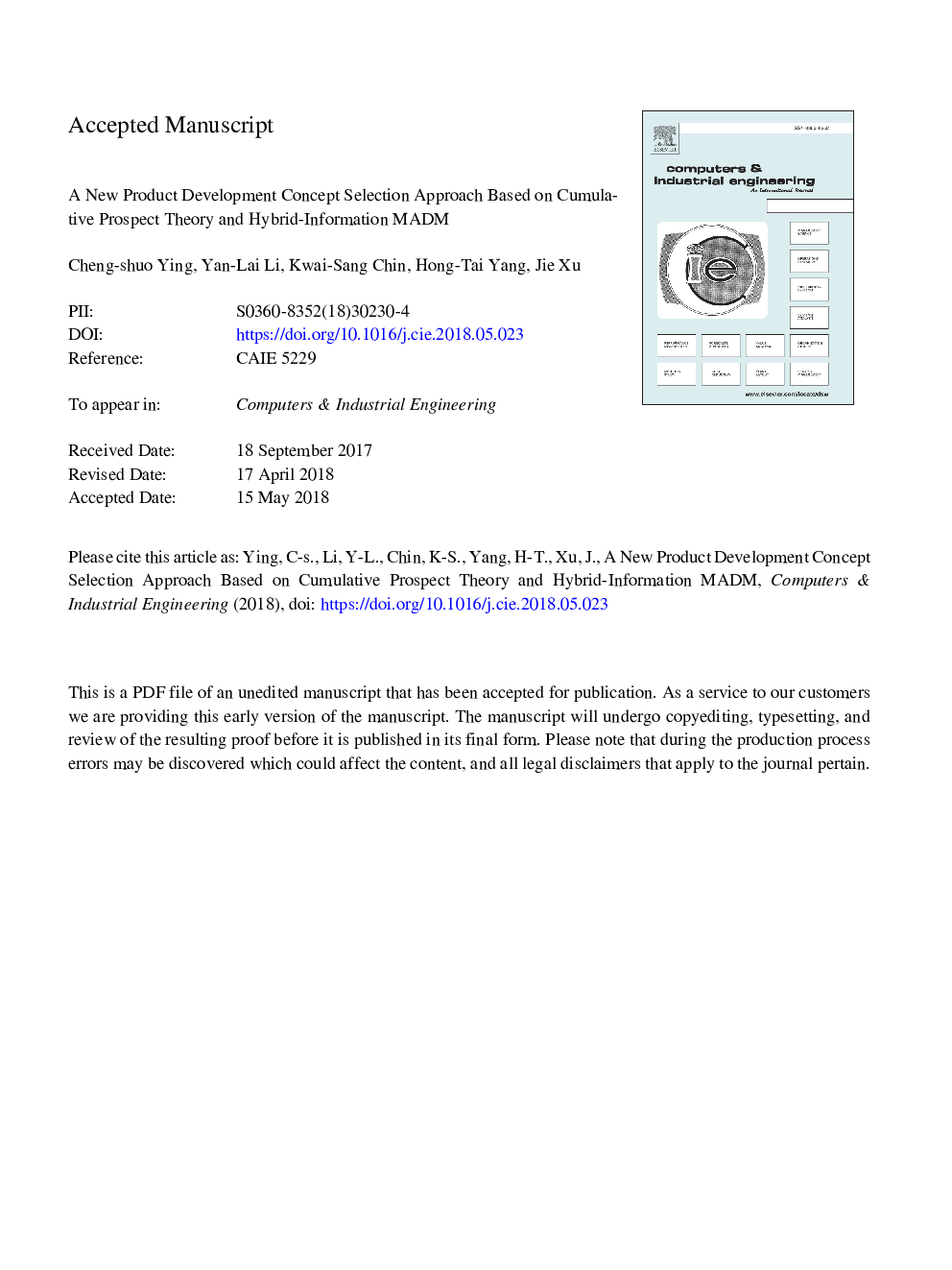| Article ID | Journal | Published Year | Pages | File Type |
|---|---|---|---|---|
| 7540999 | Computers & Industrial Engineering | 2018 | 41 Pages |
Abstract
New product development (NPD) concept selection is one of the foremost phases in the early stage of NPD to identify the best alternative concept for an enterprise. In practice, not all attributes of NPD concept can be estimated precisely considering inevitable uncertainty associated with the NPD processes. Thus, the NPD concept selection is a hybrid-information multiple attribute decision making (HI-MADM) problem, in which attribute values are represented in various formats (e.g., crisp numbers, interval numbers, and linguistic terms). In the concept selection, psychological behaviors of the NPD team (NPDT) have a non-negligible influence on the accuracy of the final decision. Nevertheless, the decision behaviors are rarely considered in existing studies on the concept selection. In this paper, a risk HI-MADM method based on cumulative prospect theory (CPT) is proposed to select the NPD alternative concepts. Initially, decision information in various formats is normalized and the expectations of the NPDT are set as the corresponding reference points with considering the psychology of the NPDT. Subsequently, the gain and loss matrix relative to the reference points is constructed. Furthermore, the prospect values of concept attributes are calculated based on the value function of CPT. Then, by aggregating prospect values and attribute weights by the simple additive weighting (SAW) method, the comprehensive prospect values of alternative concepts are obtained, and then the ranking order of all concepts can be determined. Finally, a NPD case study of a new automatic dishwasher is used to illustrate the feasibility and validity of the proposed approach and meanwhile a sensitivity analysis and a comparison analysis are conducted.
Related Topics
Physical Sciences and Engineering
Engineering
Industrial and Manufacturing Engineering
Authors
Cheng-shuo Ying, Yan-Lai Li, Kwai-Sang Chin, Hong-Tai Yang, Jie Xu,
